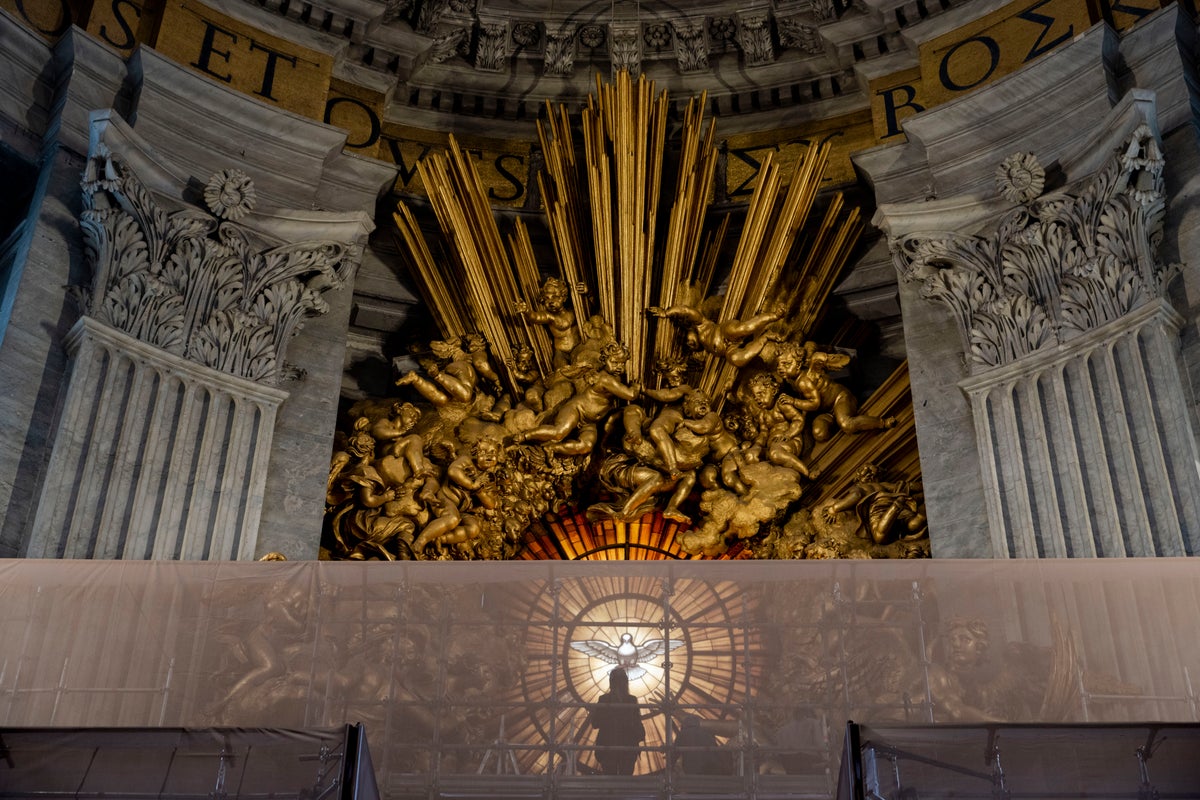
Your support helps us to tell the story
Restorers put the finishing touches Tuesday on the ornate canopy covering the main altar in St. Peter’s Basilica, which has been covered in scaffolding for months during the first renovation of Baroque architect and sculptor Gian Lorenzo Bernini’s masterpiece in more than 250 years.
Journalists were allowed a bird’s eye view of the 29-meter canopy, or baldachin, on Tuesday, climbing the scaffolding to observe where workers have buffed the intricate surface of the bronze and wood canopy.
During the renovation, workers for the Fabbrica di San Pietro, which maintains the basilica, discovered bits of the baldachin’s history, including a forgotten bit of sandwich and nuts that could be over 200 years old, a 17th Century shopping list including tomatoes and bread, and most telling: the sole of a child’s shoe.
The sole explains the tradition of using children "suspended on a rope and go and clean the most difficult areas,” said engineer Alberto Capitanucci.
The making of the scaffolding was key to the success of the work, as it needed to allow workers access “to every point of the canopy with reasonable ease,” he said.
“The wood has proven to be in excellent condition, which is the element that we expected to be the most delicate,’’ he said.
When the scaffolding is removed on Oct. 27, Capitanucci said visitors can expect to be dazzled by the sheen of restored gold plate, and the leather effect that was achieved through the restoration of the bronze.
The work was completed with an eye on the upcoming Jubilee year, which Pope Francis will inaugurate in December.
The structure, which is positioned over the basilica’s main altar to provide a ceremonial covering for the tomb of St. Peter underneath, was completed from the 1620s to 1630s on Pope Urban VIII commission of Baroque architect and sculptor Gian Lorenzo Bernini.
It is considered one of the most complicated multi-material artworks of all time, with marble, bronze, wood, gold, and iron. Numerous craftsmen and artists, including master architect Francesco Borromini, contributed to its completion.
___
Silvia Stellaci contributed to this report.







